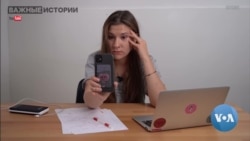ເມື່ອຣັດເຊຍ ເຂົ້າມາຮຸກຮານ ຢູເຄຣນ, ບັນດານັກຂ່າວຂອງຣັດເຊຍ ທີ່ຍັງຄົງປະຕິບັດງານແບບອິດສະຫຼະຢູ່ພາຍໃນປະເທດ ຕ້ອງຢູ່ໃນສະພາບກົດ ດັນຫຼາຍທີ່ສຸດ, ຫຼາຍຈົນເຖິງຂັ້ນເຮັດໃຫ້ພວກເຂົາເຈົ້າໄດ້ໜີອອກຈາກປະເທດໄປ. ອານັສ ອາເວຕິສຢານ (Anush Avetisyan) ມີລາຍງານກ່ຽວກັບເລື້ອງນີ້, ເຊິ່ງ ທິບສຸດາ ມີລາຍລະອຽດມາສະເໜີທ່ານໃນອັນດັບຕໍ່ໄປ.
ທ່ານມິກເຮລ ຣູບິນ (Mikhail Rubin), ຮອງບັນນາທິການ ຂອງອົງການຂ່າວ ສືບສວບສອບສວນ Proekt, ຍັງຄົງດໍາເນີນການປະຕິບັດງານຂອງທ່ານຢູ່ນອກ ປະເທດຣັດເຊຍ ຄືກັນກັບນັກຂ່າວຊາວຣັດເຊຍຄົນອື່ນ ຫຼາຍຮ້ອຍຄົນທີ່ລົບໜີ ອອກໄປນອກປະເທດເນື່ອງຈາກການບຸກລຸກຢູເຄຣນຂອງຣັດເຊຍ.
ໃນປີ 2021, ອົງການສືບສວນຂ່າວ Proekt ໄດ້ຖືກຈັດເຂົ້າໃນບັນຊີລາຍຊື່ ອົງການທີ່ບໍ່ເພິ່ງປາຖາໜາຂອງລັດຖະບານ, ແລະບັນດານັກຂ່າວຂອງພວກເຂົາເຈົ້າ ກໍໄດ້ຖືກໝາຍຊື່ວ່າເປັນ “ນັກສືບລັບຂອງຕ່າງປະເທດ” ອີກດ້ວຍ.
ທ່ານຣູບິນ ຕ້ອງທົນຕໍ່ການຖືກຂົ່ມຂູ່ມາເປັນເວລາຫຼາຍຟ້າ ຫຼາຍປີກ່ຽວກັບການ ນໍາສະເໜີຂ່າວກ່ຽວກັບຄົນວົງໃນຂອງປະທານາທິບໍດີ ວະລາດີເມຍ ປູຕິນ ກ່ອນໜີ ອອກຈາກປະເທດໄປໃນປີ 2021. ທຳອິດ, ເຈົ້າໜ້າທີ່ຂັ້ນສູງການເຕືອນທ່ານ ຣູບິນວ່າ ສິ່ງທ່ານດໍາເນີນການຢູ່ນັ້ນມັນອັນຕະລາຍ. ຕໍ່ມາ, ຜູ້ຊາຍຈໍານວນນຶ່ງທີ່ ບໍ່ຮູ້ວ່າແມ່ນໃຜໄດ້ບຸກເຂົ້າໄປອາພາດທ໌ເມັນຂອງພໍ່-ແມ່ລາວ ແລ້ວຮ້ອງໃສ່ວ່າ “ລູກຊາຍຂອງເຈົ້າບໍ່ຮູ້ສຶກອັບອາຍຂາຍໜ້າບໍ ທີ່ຂາຍປະເທດຊາດເກີດຂອງລາວເອງ? ຈາກນັ້ນ, ເຈົ້າໜ້າທີ່ຕໍາຫຼວດກໍໄດ້ບຸກເຂົ້າຄົ້ນອາພາດທ໌ເມັນຂອງທ່ານ ຣູບິນ ໃນເດືອນມິຖຸນາ ປີ 2021, ແລະກໍປົງໜັງສືຜ່ານແດນລົງຕໍ່ໜ້າຂອງລາວ.
ທ່ານຣູບິນ, ຮອງບັນນາທິການຂອງອົງການຂ່າວ Proekt ກ່າວວ່າ:
“ຂ້າພະເຈົ້າຈັບເອົາມັນຕາມຄໍາແນະນໍາ ແລະກໍຕັດສິນໃຈທີ່ຈະ ບໍ່ເອົາຊະຕາ.”
ທ່ານນາງເອກາເທຣິນາ ໂຟມິນາ (Ekaterina Fomina), ນັກຂ່າວຢູ່ໃນຈຸສືບສວນ ທີ່ເອີ້ນຊື່ວ່າ iStories, ກໍໜີອອກຈາກປະເທດຣັດເຊຍ ເຊັ່ນກັນ.
ເຈົ້າໜ້າທີ່ທາງການຂອງຣັດເຊຍ ລະບຸວ່າອົງການຂ່າວດັ່ງກ່າວ ເປັນໜ່ວຍສືບລັບຂອງຕ່າງປະເທດໃນປີ 2021, ແລະສອງມື້ກ່ອນສົງຄາມຈະເກີດຂຶ້ນ ໄດ້ຖືກຈົດເຂົ້າ ບັນຊີລາຍຊື່ຂອງອົງການທີ່ບໍ່ເພິ່ງປາດຖະໜາ.
ຫຼັງຈາກໄດ້ຮູ້ຈັກກ່ຽວກັບການຖືກເອົາເຂົ້າໃນບັນທຶກລາຍຊື່ນັ້ນ ໃນເດືອນມີນາ ຜ່ານມາ, ສະມາຊິກໃນທີມຂອງ iStories ໄດ້ຕັດສິນໃຈອອກຈາກຣັດເຊຍ ໄປຢ່າງເປັນ ເອກະສັນກັນ.
ແຕ່, ທ່ານນາງ ໂຟມິນາ ກ່າວເສີມວ່າການໜີອອກຈາກຣັດເຊຍບໍ່ເຄີຍມີແຜນຂອງຕົນເລີຍ. ທໍາອິດ, ທ່ານນາງຮູ້ສຶກບໍ່ສະບາຍໃຈທີ່ iStories ໄດ້ຖືກລະບຸວ່າເປັນ “ອົງການຂ່າວທີ່ບໍ່ເພິ່ງປາດຖະໜາແລ້ວ.” ແຕ່ ບໍ່ດົນກໍມີການປ່ຽນແປງ, ການສັງ ຫານໝູ່ຢູ່ໃນເມືອງບູຈາ, ປະເທດ ຢູເຄຣນ ໄດ້ກາຍມາເປັນຈຸດຫັນປ່ຽນອັນສໍາຄັນ.
ທ່ານນາງໂຟມິນາ ນັກຂ່າວຈາກອົງການຂ່າວ iStories ກ່າວຜ່ານທາງຊູມວ່າ:
“ຂ້າພະເຈົ້າເຫັນໄດ້ຢ່າງຈະແຈ້ງກ່ຽວກັບສັດຕູຂອງປະຊາຊົນ, ອາຊະຍາກອນ, ພວກຫົວຮຸນແຮງຈັດ ແລະພວກທີ່ບໍ່ເປັນທີ່ເພິ່ງປາດຖະໜາ- ບໍ່ແມ່ນພວກເຮົາ. ດັ່ງນັ້ນ, ຂ້າພະເຈົ້າຈຶ່ງບໍ່ສົນໃຈວ່າ ພວກລັດຖະບານສະຫະພັນຣັດເຊຍ ຈະຮ້ອງຂ້າພະເຈົ້າວ່າຈັ່ງໃດ, ເພາຂ້າພະເຈົ້າຮູ້ວ່າ ຣັດເຊຍ, ລັດຖະບານ ແລະໜ່ວຍງານຕ່າງໆຂອງພວກເຂົາ ແມ່ນຜູ້ກໍ່ການຮ້າຍ ແລະສັດຕູໂຕຈິງ ຂອງປະຊາຊົນ, ບໍ່ແມ່ນພວກເຮົາ.”
ໃນບັນຊີລາຍຊື່ທີ່ຮ້ອງວ່າ ບໍ່ເພິ່ງປາດຖະໜານັ້ນ ໄດ້ຖືກຫ້າມບໍ່ໃຫ້ດໍາເນີນງານໃດໆ ຢູ່ໃນປະເທດຣັດເຊຍ, ແລະຜູ້ໃດກໍຕາມທີ່ຍັງຄົງສືບຕໍ່ໃຫ້ການຊ່ວຍເຫຼືອອົງກາ ເຫຼົ່ານີ້ຢູ່ ອາດຈະຕ້ອງປະເຊີນກັບການລົງໂທດທາງການ ຫຼື ຖືກດໍາເນີນຄະດີອາຍາ. ທ່ານນາງໂຟມິນາກ່າວວ່າ ເຖິງແມ່ນວ່າຈະມີຄວາມສ່ຽງກໍຕາມ ແຕ່ວ່າປະຊາຊົນຊາວຣັດເຊຍທີ່ອາໄສຢູ່ພາຍໃນປະເທດ ກໍຍັງສົ່ງຂ່າວມາໃຫ້ທີມຂອງພວກເຮົາຢູ່ທາງນອກຢູ່.
ທ່ານນາງໂຟມິນາກ່າວຜ່ານຊູມວ່າ:
“ຍ້ອນສົງຄາມດັ່ງກ່າວນີ້, ປະຊາຊົນຈຶ່ງພາກັນຢ້ານກົວ, ແຕ່ພວກເຂົາກໍພ້ອມທີ່ຈະ ແບ່ງປັນໃນສິ່ງທີ່ພວກເຂົາເຈົ້າຮູ້, ເລົ່າເລື້ອງຕ່າງໆກ່ຽວກັບການຂາດລະບຽບກົດໝາຍທີ່ເກີດຂຶ້ນຢູ່ໃນຣັດເຊຍນັ້ນໃຫ້ເຮົາຮູ້.”
ມາຮອດທ້າຍເດືອນຕຸລານີ້, ມີນັກຂ່າວຢ່າງໜ້ອຍ 12 ຄົນປະເຊີນກັບຂໍ້ກ່າວຫາຕ່າງໆ ໃນຣັດເຊຍ ໂດຍໄດ້ລາຍງານກ່ຽວກັບສົງຄາມ ເຊິ່ງໄດ້ຖືກຕັດສິນຂັງຄຸກເປັນເວລາ 10 ປີ.
ທ່ານກາລິນາ ອະຣາໂພວາ (Galina Arapova), ເປັນທະນາຍຄວາມອາວຸໂສກ່ຽວ ກັບສື່ສັງຄົມ ແລະເປັນຜູ້ອໍານວຍການຢູ່ທີ່ ສູນກາງສື່ສານທາງດ້ານຄວາມໝັ້ນຄົງ ຂອງສູນກາງສື່ສານມວນຊົນດ້ານປ້ອງກັນປະເທດ ຫລື Mass Media Defence Centre ກ່າວວ່າ ຣັດເຊຍ ມີເຈດຕະນາຜ່ານຮ່າງກົດໝາຍທີ່ບໍ່ຈະແຈ້ງ, ເຊິ່ງ ທ່ານກ່າວວ່າ:
“ການສອດແນມຕິດຕາມຕ່າງໆ ແມ່ນເປັນໄປແບບບໍ່ຖືກຕ້ອງ, ດັ່ງນັ້ນ ກົດໝາຍ ແລະກົດຂໍ້ບັງຄັບທັງຫຼາຍຈຶ່ງມີການປ່ຽນແປງເພື່ອໃຫ້ມີໂອກາດແນເປົ້າໝາຍໃສ່ຄົນໃດ ກໍໄດ້ຖ້າຫາກມີຄວາມຈໍາເປັນຂຶ້ນມາ.”
ໃນຫຼາຍໆກໍລະນີ, ຍຸດທະສາດດັ່ງກ່າວນີ້ແມ່ນດໍາເນີນການໄດ້ຕາມເປົ້າໝາຍ. ນັກຂ່າວຫຼາຍຮ້ອຍຄົນພາກັນໜີອອກມາຈາກ ຣັດເຊຍ ນັບຕັ້ງແຕ່ສົງຄາມເລີ້ມຕົ້ນຂຶ້ນ. ແຕ່ ນັ້ນບໍ່ສາມາດເຮັດໃຫ້ພວກເຂົາເຈົ້າຫຼາຍໆຄົນຢຸດການດໍາເນີນງານຂອງພວກ ເຂົາເຈົ້າໄດ້.
When Russia invaded Ukraine, Russian journalists who continued to work independently in the country came under significant pressure — so much so that many have been forced to leave. Anush Avetisyan has the story, narrated by Anna Rice.
Mikhail Rubin, deputy editor in chief of the investigative news outlet Proekt, continues to do his job from outside Russia — like hundreds of other Russian journalists who fled the country following Russia’s invasion of Ukraine.
In 2021, Proekt was included on a Russian government list of undesirable organizations, and its journalists were labeled "foreign agents."
Rubin weathered years of threats over Proekt’s coverage of President Vladimir Putin’s inner circle before leaving in 2021. First, a high-ranking official warned Rubin that what he was doing was dangerous. Next, unknown men broke into his parent’s apartment, screaming: “Isn't your son ashamed to sell out his homeland?" Then police raided Rubin’s apartment in June 2021 and placed his passport in front of him.
Mikhail Rubin, Proekt Deputy Editor in Chief
“I took it as a hint and decided not to test my fate after that.”
Ekaterina Fomina, a journalist at the investigative portal called iStories, also left Russia.
Russian authorities labeled the media outlet a foreign agent in 2021, and two days before the war, it was added to the list of undesirable organizations.
After learning about the listing in March, members of iStories' team unanimously decided to leave Russia.
But, Fomina adds, leaving Russia was never her plan. At first, she was uneasy about iStories being labeled an "undesirable.” But that soon changed. The mass killings in Bucha, Ukraine, became the turning point.
Ekaterina Fomina, iStories Journalist, Zoom
“I realized that the enemies of the people — criminals, extremists and undesirables — are not us. So, I don’t care what the Russian Federation calls me, because I know that Russia, its governments and authorities are actual terrorists and enemies of the people, not us.”
Organizations on the so-called undesirables list are prohibited from working in Russia, and those that continue to help these organizations can face administrative penalties or criminal charges. Fomina says that despite the risks, Russians inside the country are reaching out to the team.
Ekaterina Fomina, iStories Journalist, Zoom
“Because of this war, people are terrified, but they are ready to share what they know, tell stories about lawlessness that takes place in Russia.”
As of late October, at least 12 journalists are facing charges in Russia related to their war coverage and face up to 10 years in prison.
Galina Arapova, senior media lawyer and director at the Mass Media Defence Centre, says Russia has been intentionally passing vague laws.
Galina Arapova, Mass Media Defence Centre, Zoom
“Censorship has gone rogue, so laws and regulations are being changed to have a chance to target anyone if the need arises.”
In many cases, this strategy has worked. Hundreds of journalists have left Russia since the start of the war. But that hasn’t stopped many of them from doing their job.





